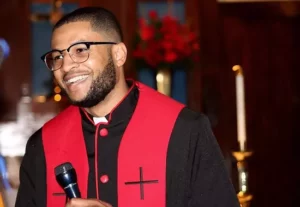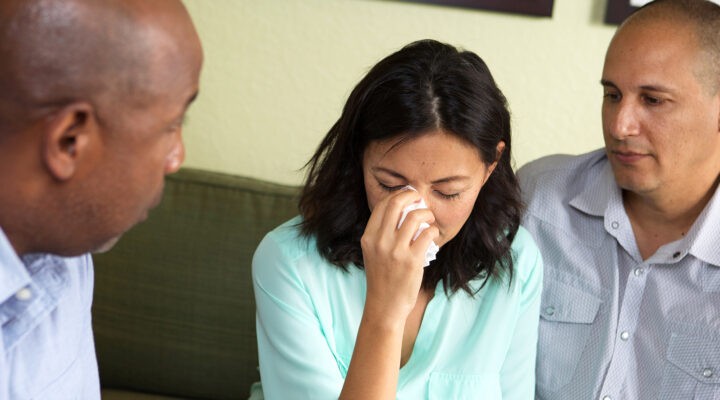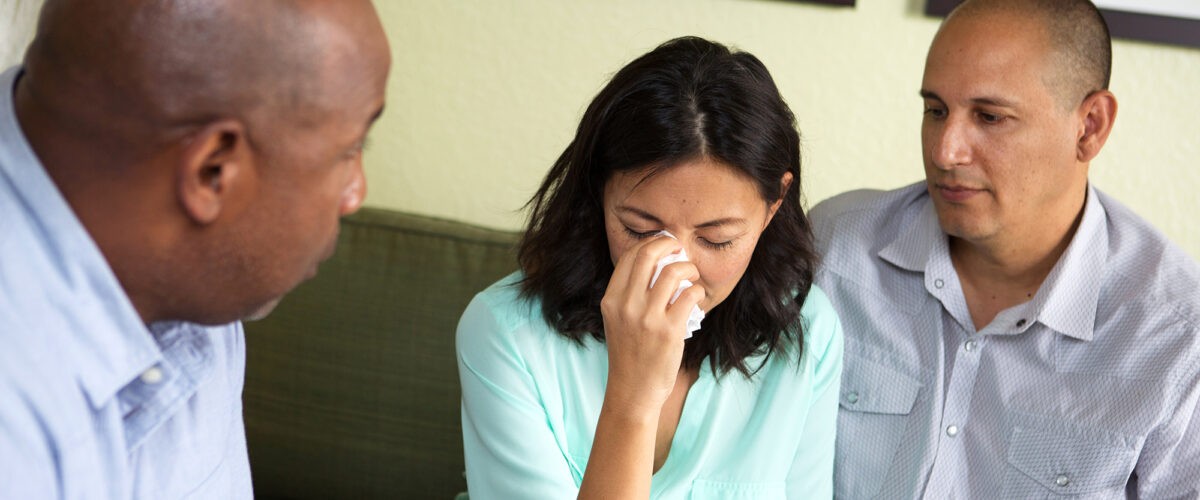New research shows that pastors remain the go-to mental health providers for many members of Black and Hispanic churches in the United States.
Congregants report this stems from belief that faith alone can heal emotional trauma, from stigma surrounding treatment or a belief that psychologists, counselors and other practitioners cannot be trusted.
“When asked what they would do if faced with a mental health concern, many Black and Latino Christians reported that they would either pray or seek their pastor,” authors Daniel Bolger and Pamela J. Prickett said in the study by Rice University’s Religion and Public Life Program.
“In fact, ‘pastor’ was the mostly commonly cited mental health resource mentioned across our sample; some even mentioned that their pastor was the only person they would seek,” the researchers wrote.
These and other findings in the study mirror the observations and experiences of a Black pastor who said he’s worked with congregants who didn’t believe mental illness is real.

Louis Tillman III
“Mental health is often considered a white issue in the Black community. It was something folks thought we could pray our way out of, or that it really didn’t exist,” said Louis R. Tillman III, an East Baltimore Lutheran minister and church consultant for predominantly Black congregations and clergy.
The report also found that many pastors feel uneasy and ill-equipped to fill the role of mental health provider, a sentiment Tillman said he has shared with other ministers. “Theologically, Black clergy are put on pedestals and taught to be saviors not servants … and a lot of us are not trained on how to even do referrals.”
But that is not how church members often see it, according to the study. “For many, the decision to consult their pastor seemed self-evident, and they described the pastor as uniquely qualified to deal with mental health issues.”
For example, an African American woman told researchers during a series of focus groups and individual interviews that she would try to dissuade friends from seeing a counselor.
“‘I wouldn’t send them to a psychiatrist, I would recommend they talk to the pastor first,’” the respondent said. “‘Pastors for some reason can draw more out of people than a regular person, just because they have that title.’”
The woman added that pastors possess “‘the gift of discernment” and “whatever he says, it goes.”
Most Latinos, the study found, “said that they would pray or seek out their pastor if facing a mental health issue, although respondents in this population tended to express more recognition that the pastor may not be the only resource they would seek.”
Pastors interviewed for the study agreed with lay people that mental illness is pervasive and “a major source of suffering for congregants.”
One Latino pastor cited in the study said “about 80% of the people that come into our church are suffering from depression. They deal with a lot. And about eight years ago we did a survey of people in our church. Fifty percent of adults had experienced sexual molestation. I was astounded.”
“‘I’m a pastor, I can tell you about Jesus. I can dig into Scriptures; I can read that. But you have some psychological issues I’m not prepared to help you walk through.’”
The expectations placed on pastors to serve as mental health professionals ends up creating mental health stress for them, the researchers said, citing an astounding level of stress among pastors over these expectations.
“In our first focus group with Black pastors, before we had even asked about mental health, the topic generated a conversation in which pastors actively tried to solicit help from each other to know how to better deal with mental health concerns in their individual congregations,” the researchers explained.
One Black minister told interviewers he is the wrong person to consult on mental health. “‘I’m a pastor, I can tell you about Jesus. I can dig into Scriptures; I can read that. But you have some psychological issues I’m not prepared to help you walk through.’”
The authors added that “what made the pastor uniquely qualified in the eyes of congregants was in fact a limitation from the perspective of the pastors themselves.”
The study noted differences in how Black and Latino Christians perceive mental illness and the stigma around its treatment.
In the Black community especially, one respondent said, “‘We were taught what happens at home stays at home, right?’ It’s a huge stigma.”
“‘We were taught what happens at home stays at home, right?’ It’s a huge stigma.”
“For our Black congregants, responses to mental health crises were deeply informed by explicit notions of race and perceived social norms within the broader racial/ethnic community,” the study explained. “Thus, the ‘Black community,’ rather than religious beliefs or even the ‘Black church,’ served as the reference point through which congregants and pastors explained their help-seeking preferences with regard to mental health.”
For Hispanic Christians, however, the lens for perceiving mental and emotional health challenges is informed largely by the norms of individual congregations and from a perspective of faith.
“Whereas in the Black congregation respondents were hesitant to frame mental health problems in religious terms, members of the Latino congregation we interviewed were more likely to explain mental health issues as related to sin or lack of commitment to God,” the researchers said.
The study concluded that pastors must be better trained if they are to continue serving in mental health roles in their communities.
Tillman agreed but added that congregational attitudes toward mental illness may improve as Millennial and Gen Z Christians take more leading roles in the church.
“They are the ones bringing mental health to the forefront and advocating for mental health,” he said. “They are the ones trying to find the intersectionality of faith and medicine and they are the ones going to counseling.”
Related articles:
Racism-induced trauma creates hopelessness in Black communities, scholars say
Churches adapted rapidly to the pandemic, but there’s a mental health cost to that success


